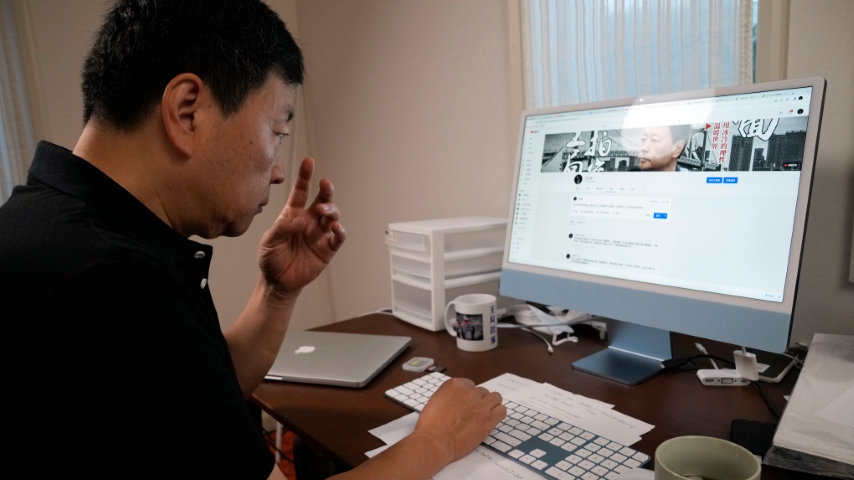
On October 5, 2022, Wang Zhi'an was interviewed by the Associated Press in Tokyo while browsing his website. Wang, a former investigative journalist from China, gained recognition for uncovering cases of corruption, land seizures, and medical misconduct while working for the state broadcaster CCTV. Now residing in Japan as an exile, Wang has embarked on a new journey as an independent journalist, utilizing platforms like YouTube to continue his work. (Photo credit: AP/Eugene Hoshiko)
In a startling development underscoring Beijing's tightening grip on dissent, two prominent Chinese bloggers, currently in exile, have revealed a chilling new tactic employed by Chinese authorities. Former CCTV journalist Wang Zhi'an and dissident artist Li Ying, known for disseminating uncensored news, disclosed on Sunday that Chinese police are probing their international social media followers. The revelation has sent shockwaves through their millions-strong online communities.
Li Ying, also known as Teacher Li, rose to fame for providing insights into the White Paper protests, a rare anti-government movement in mainland China. His X account, @whyyoutouzhele, serves as a platform for sharing uncensored content, covering a wide array of topics from local protests to censored viral videos.
In a concerning update, Teacher Li urged his followers to distance themselves, fearing police scrutiny. He disclosed that public security authorities were scrutinizing each of his 1.6 million followers and those engaging in the comments section.
Screenshots shared by Li revealed private messages from concerned followers, detailing instances of police interrogation and even job loss.
The fallout was evident as Li's follower count plummeted to 1.4 million on X by Tuesday morning.
Similarly, Wang, boasting a substantial following on X and YouTube, cautioned his subscribers to sever ties.
Despite mounting pressure, Chinese authorities appeared dismissive, with the Foreign Ministry claiming ignorance and distancing itself from the issue.
Beijing's crackdown on dissent is not new, with extensive censorship measures and thousands of censors monitoring online activity. Chinese users expressing dissenting views face harassment, interrogation, and even detention.
What's particularly alarming is Beijing's extension of its surveillance apparatus to international platforms like Facebook, Telegram, and X. Recent leaks have exposed China's use of sophisticated tools to monitor and suppress dissent on overseas social media.
In the face of adversity, Li remains resolute, vowing to continue sharing authentic news. However, he implores his followers to prioritize their safety, acknowledging the high price of seeking the truth amid China's tightening grip on dissent.
As the Chinese government expands its surveillance dragnet beyond its borders, the global community must grapple with the implications for free speech and digital privacy.















